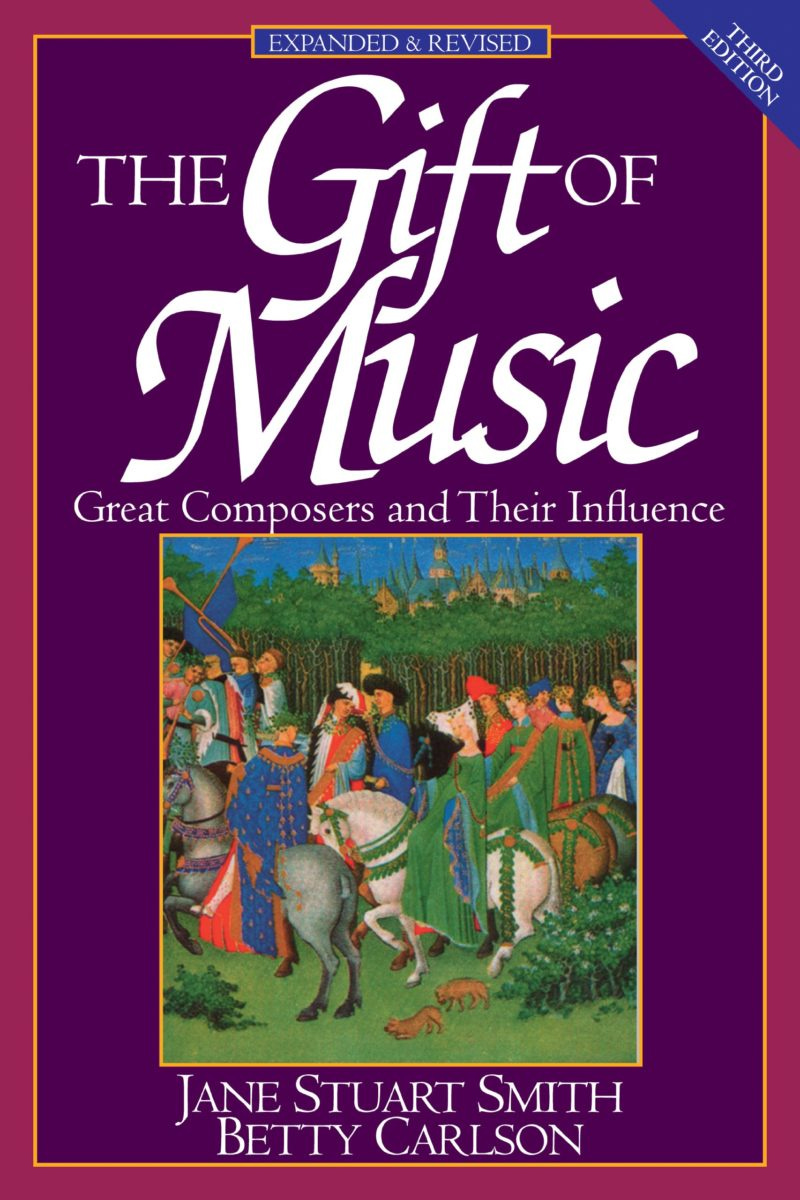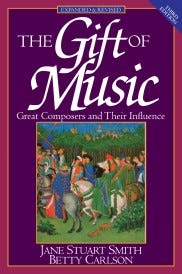The Hills Are Alive With “The Gift Of Music”


by Marc Hays
Over the holidays I began reading The Gift of Music: Great Composers and Their Influence, by Jane Stuart Smith and Betty Carlson, both of whom worked at L’Abri with Francis Schaeffer. The book is a collection of biographical sketches of the great composers of Western music, but that categorization does not do justice to what these two ladies have accomplished. Please allow me to explain.
Upon perusing the table of contents, the reader will find 44 chapters in a book that is only 300 pages long. Yep, that’s right: the chapters average only 6 to 7 pages long. My initial reaction was that this book might be attempting to accomplish too much, which could result in accomplishing very little. I was very wrong. The biographical sketches are short, but they are short because of a pithy, conservative use of words, not from a lack of information or insight.
However, while being short, the chapters are not encyclopedia entries. This book was not designed to be an information download from one, human hard-drive to another. Rather, each chapter is brimming with the love that these ladies have for the composers and their work. These passionate authors follow lock step in the footprints of their mentor, Francis Schaeffer, and their work is undoubtedly an extension of the work he began. He revealed how the 20th Century was an era of decadence. The Gift of Music is a positive tool for rebuilding that which has been disintegrating in the post-modern era.
I have not finished reading the book yet, so this is not a book review, per se, but I am enjoying it so much that I didn’t want to wait until I was done reading it to share some quotes from it.
So, without further ado, here’s Betty Carlson from the Prelude to the Third Edition:
Most of all, the purpose of this book is to encourage listening to the finest music with understanding and pleasure and to stretch one’s imagination. The more people acquaint themselves with what is truly great and beautiful, the more they will dislike and turn away from that which is shallow and ugly. Also we want to show that what each artist believes in his heart and mind affects his creativity and influences those who follow him.
In the Introduction, the authors demonstrate how God’s hymnbook, the Psalms, has been a direct influence in the development of Western musical literature.
The key word of the book of Psalms is “worship,” and this is heightened by musical settings. Poetry is the form of expression most appropriate to describe feelings, and with music added, the emotional intensity is increased. The word “psalm” comes from the Greek “psalmoi,” meaning “twangings of harp strings,” which reminds us that psalms are meant to be sung.
When God decided to give the Israelites a theology manual, he inspired David, Asaph, and others to write songs. Through this, God showed us that theology class was never meant to be abstracted from choir practice. If it can be said truly, it should be sung gloriously. Truth is conveyed via harp and trumpet and timbrel and drums, as much as it is declared by the words being sung. The psalms are living proof, and Betty Carlson and Jane Stuart Smith do not miss this pivotal point. The introduction extrapolates the pivotal role the psalter had in the development of Western music.
The Gift of Music jumps into the story of Western music at the beginning of the Baroque era: Schutz, Vivaldi, Bach, and Handel are introduced in the first four chapters. The chapters are each so densely packed with quotable insight, but I don’t want to ruin it by overstaying my welcome with you, dear reader. Over the next few weeks, I’ll be posting some of my favorite quotes in our Scribblings column. “The Gift of Music” will be in the titles of my posts, if you are interested in keeping up as I progress. Better yet, go to Amazon, get this gem of a book for yourself, and share some of your favorite quotes with all of us here at KC.
Here’s a link to The Gift of Music at Amazon.com
The post The Hills Are Alive With “The Gift Of Music” appeared first on Kuyperian Commentary.

